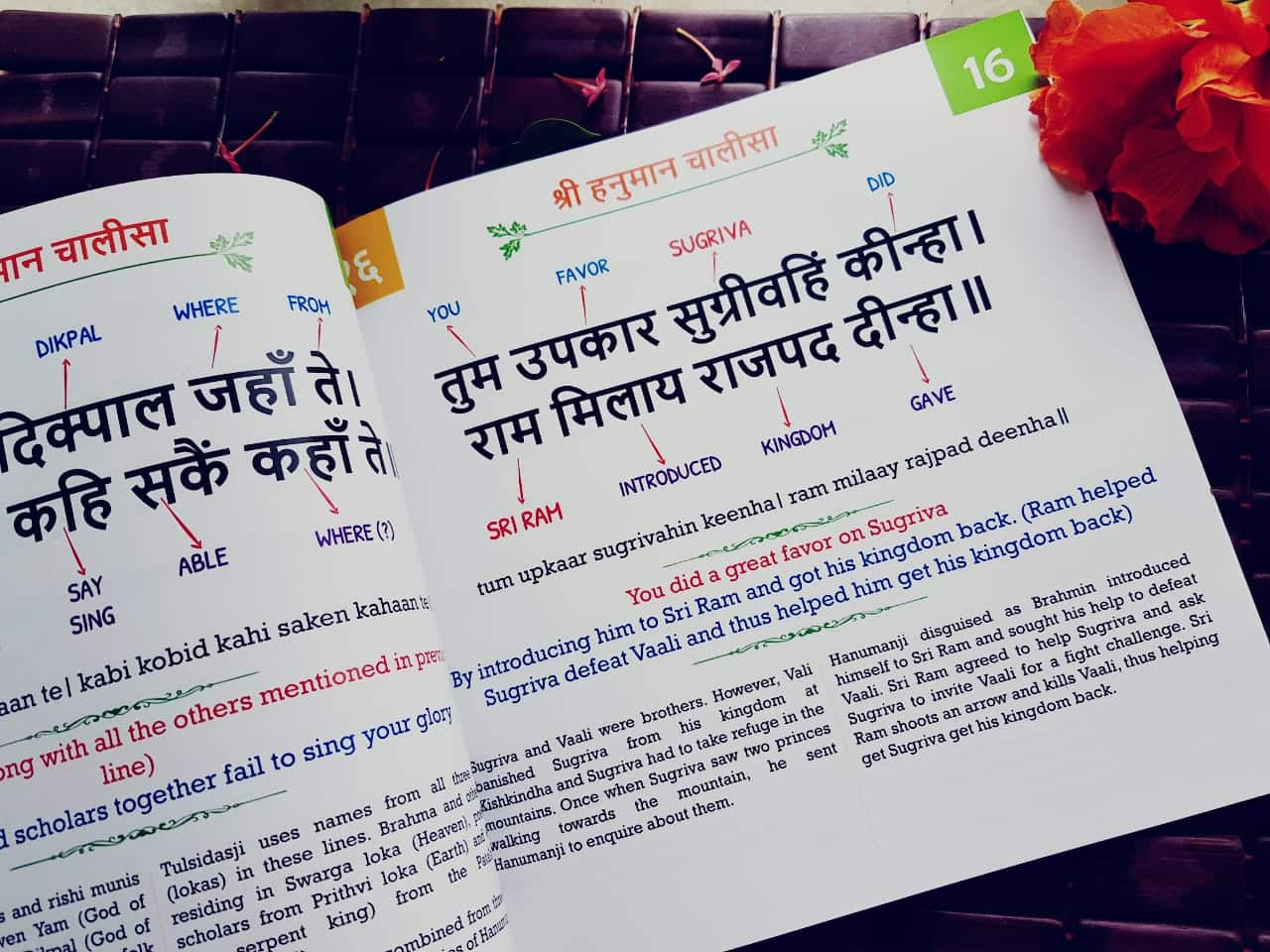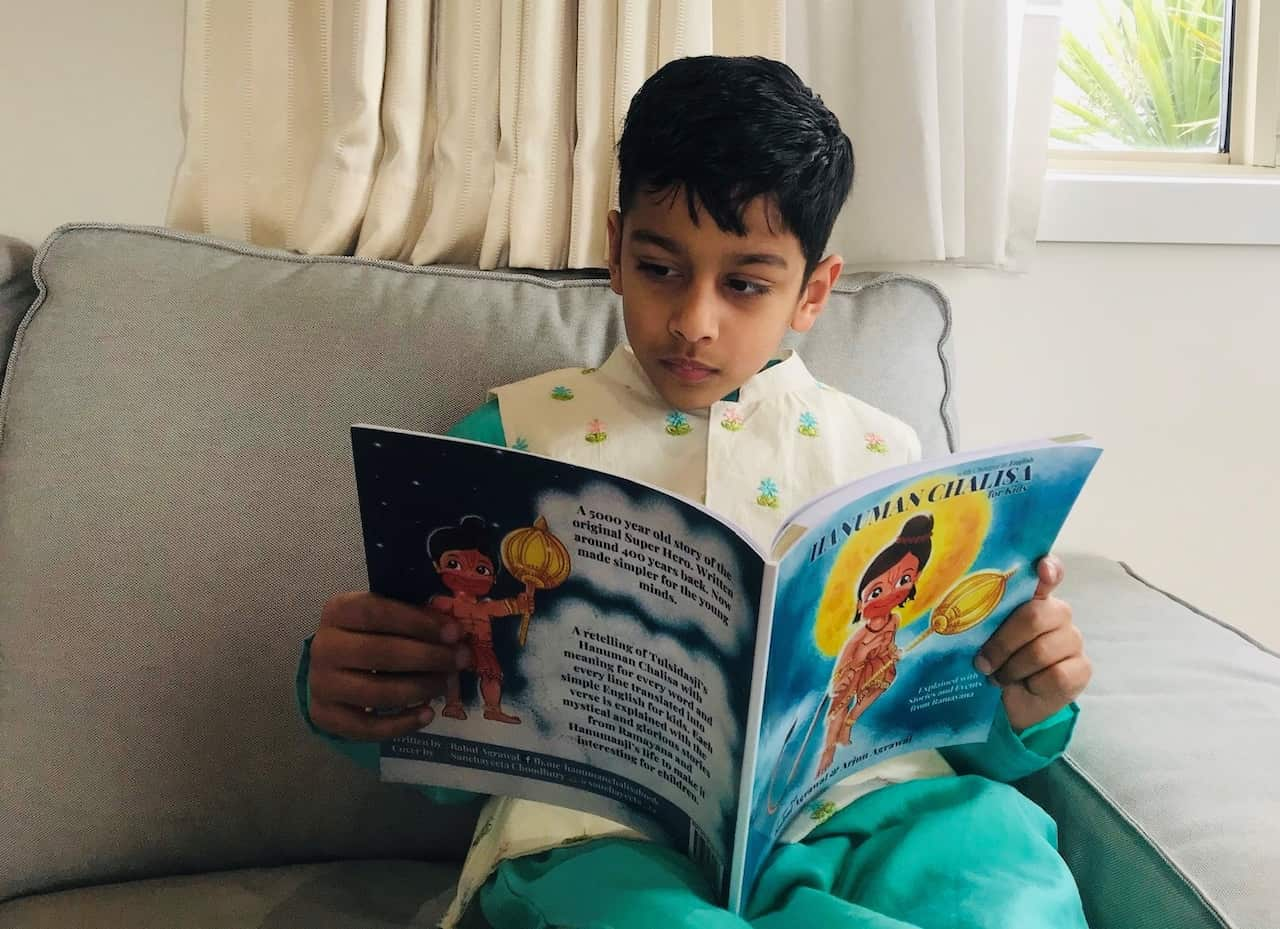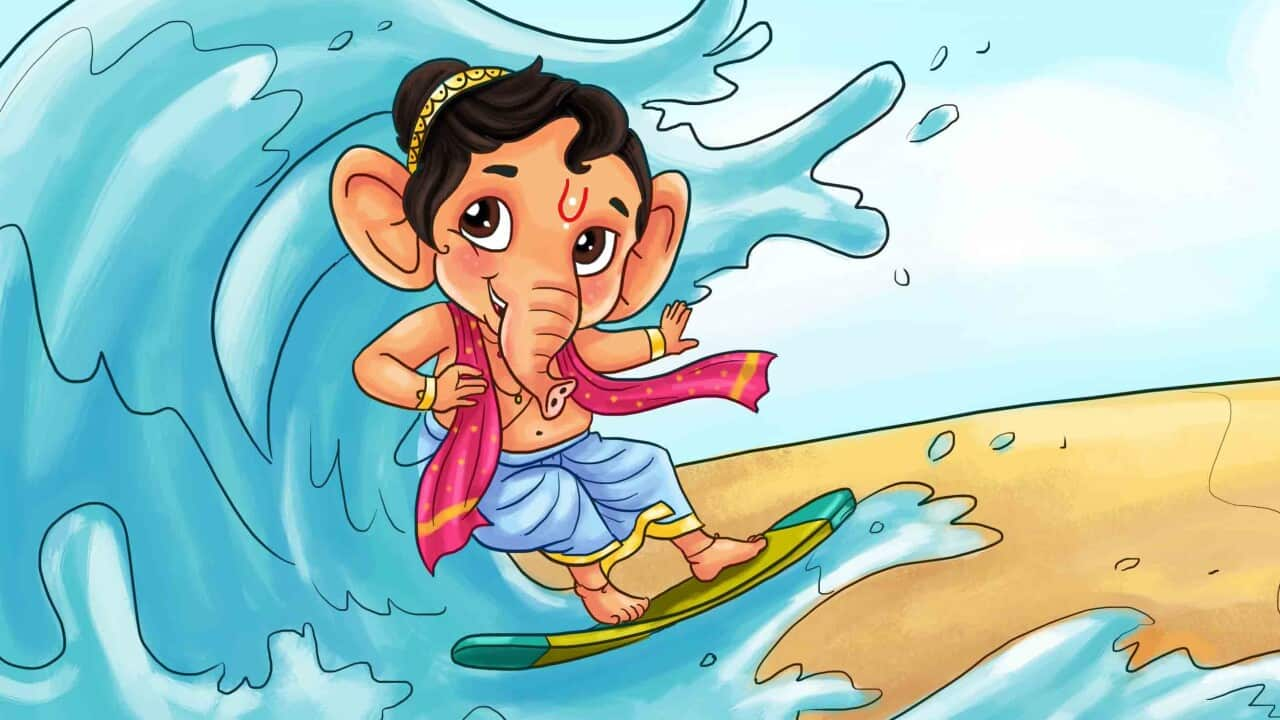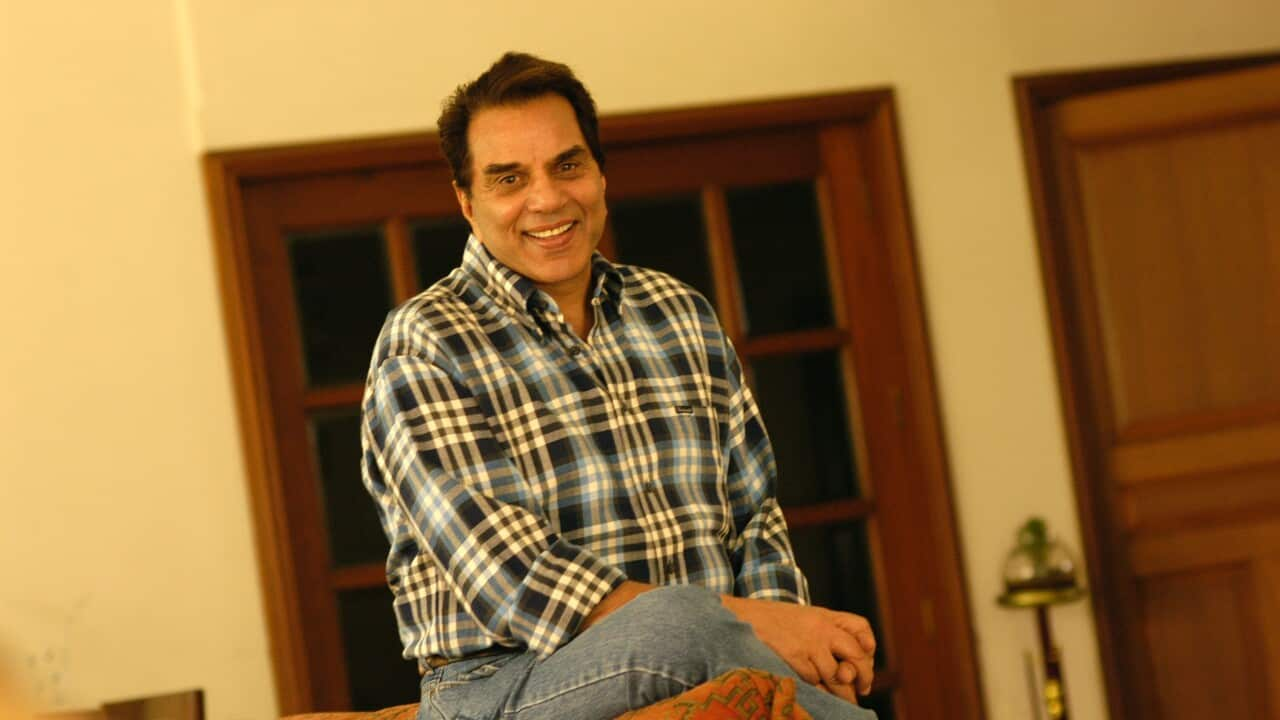Highlights
- Indian father translates and publishes Indian religious text in English
- Took him six months to research, write and publish
- Hanuman Chalisa for kids also includes stories from the Ramayan
The Hanuman Chalisa is a Hindu devotional hymn, recited in praise of the Indian deity, Lord Hanuman. The word Chalisa denotes number 40, and thus the text is essentially 40 verses in praise of Lord Hanuman.
The motivation to translate and explain each word of the religious text was to keep his son, Arjun, connected to Indian roots, says Rahul Agrawal.
Mr Agrawal says Hanuman Chalisa was an integral part of his childhood while growing up in Jharkhand, India.
“I grew up reciting Hanuman Chalisa. My cousins and I would compete to see who could recite it entirely. I was keen to teach the same to my kids,” he says.

But like many kids growing up in Australia, his son, Arjun, does not understand Hindi very well.
“He is more comfortable with English. So I had to explain each word in English,” he says.
When his son’s curiosity grew, Mr Agrawal turned it into a project.
“Every day, I would explain four lines to my child in English. I would break up the verses and write them on a whiteboard. Later, I started doing it on the computer because it made it easier to share with my friends,” Mr Agrawal said.
Mr Agrawal found there were no books available to explain Hanuman Chalisa to kids, especially in English in the market and encouraged by the positive response from friends, he decided to publish it himself.
“I thought of publishing the book myself so other kids who are keen to understand Hanuman Chalisa, could benefit.”
Listen to the podcast:

The research process which took almost six months helped Mr Agrawal gain a better knowledge of the text.
I researched online, spoke to my elders and read religious texts explaining its meaning. During my research, I learnt so much. I realised I barely knew 20-30 per cent of the text.
Once the research was done, Mr Agrawal roped in help from his sister and her friend in India for illustration and design and self-published the book.
He says the book has received great response online.
“We have been promoting our book on Facebook and we have received such great responses from everyone, especially parents. This is a non-commercial venture. We do not want to make money from this. We only want more kids to learn about our ancient, rich Indian texts,” says Mr Agrawal.
Tune into SBS Hindi at 5 pm every day and follow us on Facebook and Twitter






